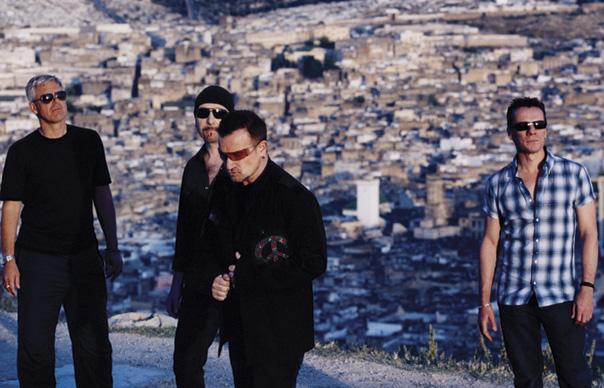The Entertainment Retailers Association have called U2's album giveaway "as damaging as piracy", saying that it devalues music. According to a statement from the ERA, U2 sold just 60 back catalogue CDs on the high street following their Songs Of Innocence album giveaway and 6,047 online over the past week. ERA Chairman Paul Quirk said: "This vindicates our view that giving away hundreds of millions of albums simply devalues music and runs the risk of alienating the 60% of the population who are not customers of iTunes. If one of the justifications of this stunt is that it would drive sales of U2's catalogue through the market as a whole, then so far at least it has been a dismal failure." Quirk went on to say, "Giving away music like this is as damaging to the value of music as piracy, and those who will suffer most are the artists of tomorrow. U2 have had their career, but if one of the biggest rock bands in the world are prepared to give away their new album for free, how can we really expect the public to spend £10 on an album by a newcomer?" The ERA statement notes that aggregate sales of U2's catalogue amounted to 697 albums across Great Britain and Northern Ireland the week before the band announced it would give away 500m copies of Songs Of Innocence. Last week they amounted to 6,744, an 868% increase, but worth at retail prices less than £50,000. Of those sales, 95.4% were digital downloads, since physical retailers were not briefed in advance to order in extra stock. The band and Apple 'gifted' 500 million iTunes users with their new album last week, however, after some users complained about the record being automatically downloaded onto their Apple products without their permission Apple released a tool to allow its customers to remove Songs Of Innocence from their devices with just one click. "Some customers asked for the ability to delete Songs Of Innocence from their library, so we set up itunes.com/soi-remove to let them easily do so. Any customer that needs additional help should contact AppleCare," Apple spokesman Adam Howorth told the BBC.
The Entertainment Retailers Association have called U2‘s album giveaway “as damaging as piracy”, saying that it devalues music.
According to a statement from the ERA, U2 sold just 60 back catalogue CDs on the high street following their Songs Of Innocence album giveaway and 6,047 online over the past week. ERA Chairman Paul Quirk said: “This vindicates our view that giving away hundreds of millions of albums simply devalues music and runs the risk of alienating the 60% of the population who are not customers of iTunes. If one of the justifications of this stunt is that it would drive sales of U2’s catalogue through the market as a whole, then so far at least it has been a dismal failure.”
Quirk went on to say, “Giving away music like this is as damaging to the value of music as piracy, and those who will suffer most are the artists of tomorrow. U2 have had their career, but if one of the biggest rock bands in the world are prepared to give away their new album for free, how can we really expect the public to spend £10 on an album by a newcomer?”
The ERA statement notes that aggregate sales of U2’s catalogue amounted to 697 albums across Great Britain and Northern Ireland the week before the band announced it would give away 500m copies of Songs Of Innocence. Last week they amounted to 6,744, an 868% increase, but worth at retail prices less than £50,000. Of those sales, 95.4% were digital downloads, since physical retailers were not briefed in advance to order in extra stock.
The band and Apple ‘gifted’ 500 million iTunes users with their new album last week, however, after some users complained about the record being automatically downloaded onto their Apple products without their permission Apple released a tool to allow its customers to remove Songs Of Innocence from their devices with just one click.
“Some customers asked for the ability to delete Songs Of Innocence from their library, so we set up itunes.com/soi-remove to let them easily do so. Any customer that needs additional help should contact AppleCare,” Apple spokesman Adam Howorth told the BBC.



